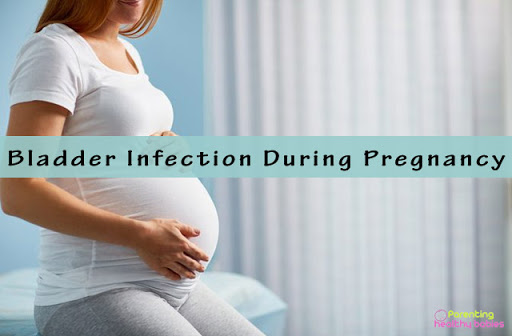So, you have heard of HELLP syndrome and worried if you may be having it? If you are in your third trimester and have a history of preeclampsia, you may also contract HELLP. Listed below are the symptoms of HELLP that you should watch out for and report to your medical physician right away.
After week 20 of pregnancy, some women experience a rare life-threatening problem called HELLP syndrome. It is usually linked with preeclampsia, a complication during pregnancy that leads to high blood pressure.
HELLP syndrome shows up in the last trimester of pregnancy, usually before week 37. About 15% of women with preeclampsia also exhibit the HELLP syndrome, whichis accelerated due to a history of preeclampsia, poorly managed blood pressure and late maternal age.
HELLP is an acronym of three major abnormalities that show up in a lab analysis. This syndrome is a problem concerning the blood and liver, which can be fatal if not treated. The symptoms of this syndrome are both vague, difficult to diagnose and wide-ranging.
HELLP, therefore, stands for:
H: Hemolysis
E L: Elevated Liver enzymes
L P: a Low Platelet count
Read More: 11 Home Remedies for Polycystic Ovary Syndrome
Hemolysis
When the red blood cells break down, hemolysis sets in. Those who suffer from hemolysis suffer from red blood cells that have broken down too quickly and too soon. Consequently, low red blood cells develop and this could lead to anaemia, in which blood doesn’t reach all parts of the body.
Elevated liver enzymes
These enzymes prove that your liver doesn’t function optimally. If liver cells are injured or inflamed, they pour out certain chemicals like enzymes into the blood.
Platelets:These cell fragments in the bloodstream enable blood clotting. Low platelet levels lead to excessive bleeding.
Symptoms of HELLP Syndrome
The symptoms of HELLP are akin to those of flu. Though they may be considered to be normal pregnancy symptoms, yet its symptoms seem normal during pregnancy. HELLP symptoms usually vary from one pregnant woman to another, however, theseseven symptoms are generally exhibited:
- feeling generally unwell or fatigued
- stomach pain or chest tenderness
- nausea or vomiting or indigestion followed by pain after a meal
- headache
- swollen hands, face or legs
- shoulder pain or pain with deep breathing
- bleeding
In some rare cases, pregnant women may also experience seizures, headaches and confusion. If pregnant women experience these symptoms, it means they need prompt medical attention.
Risk factors
Though the cause of this syndrome isn’t known, yet there are some factors that can accelerate a pregnant woman’s risk of developing it.
The greatest risk factor for HELLP is preeclampsia, a condition marked by high blood pressure and swelling. It usually shows up in the third trimester of pregnancy. Other risk factors include:
- Being 30 years of age or more
- Of Caucasian ethnicity
- Being obese
- Having had pregnancies previously
- Eating a poor diet
- Having diabetes
Read More: What is Down Syndrome? Symptoms, Causes and Treatment
Diagnosis
If the doctor suspects HELLP, he will perform a physical exam and as her to undergo several tests. He will check for stomach tenderness, excessive swelling or an enlarged liver. The doctor may also ask for the following tests:
- Blood test to check platelet and red blood cell levels
- Urine test to check for increased liver enzymes levels and abnormal proteins
- MRI to check for bleeding in the liver
Treatment
After a pregnant woman is diagnosed with the HELLP syndrome, the best way to prevent further complications is to go ahead with the baby’s delivery. It is not surprising for many babies of mothers with HELLP to be born prematurely.
However, much depends on how soon pregnant women receive treatment. A lot also depends on the severity of their symptoms and how close they are to their due date. For mild HELLP syndrome symptoms or if the baby is under 34 weeks of age, the doctor may prescribe the following:
- Bed rest
- Blood transfusion to correct anaemia and low platelet levels
- Magnesium sulfate to prevent having seizures
- Antihypertensive medication to normalize blood pressure
- Corticosteroid medication for the baby’s lungs to grow if a premature birth is required
Prevention
Most pregnant women find that this syndrome cannot be prevented because its cause is unknown. However, pregnant women suffering from preeclampsia can lower their risk for HELLP syndrome if they maintain a healthy lifestyle. This includes regular exercise, eating a healthy diet that’s good for the heart including lean protein, fruits, vegetables and whole grains. Early detection of HELLP and treatment can bring down the risk of complications.
If you notice these signs and symptoms, you must consult a doctor without delay, who will be able to assess your condition and suggest a treatment plan so that you and your baby are safe and healthy.
Read More: Fetal Alcohol Syndrome: Symptom, Cause, Risk, Prevention
Resources:
https://www.webmd.com/baby/tc/hellp-syndrome-and-preeclampsia-topic-overview
https://www.healthline.com/health/hellp-syndrome#treatment5













